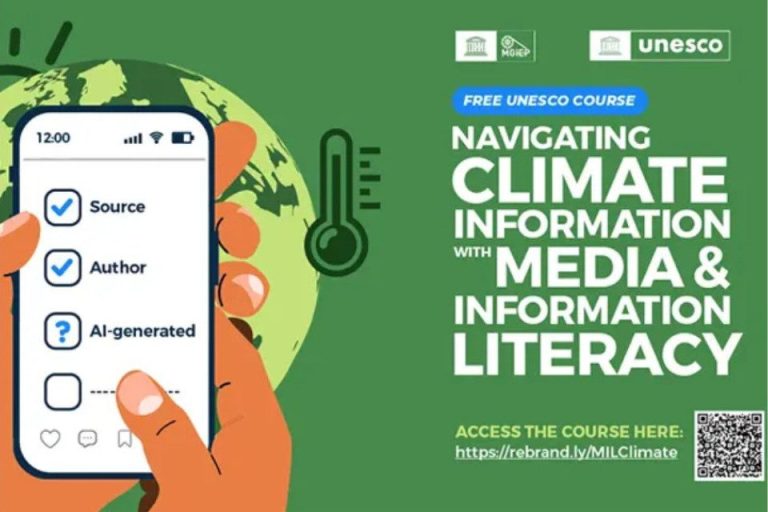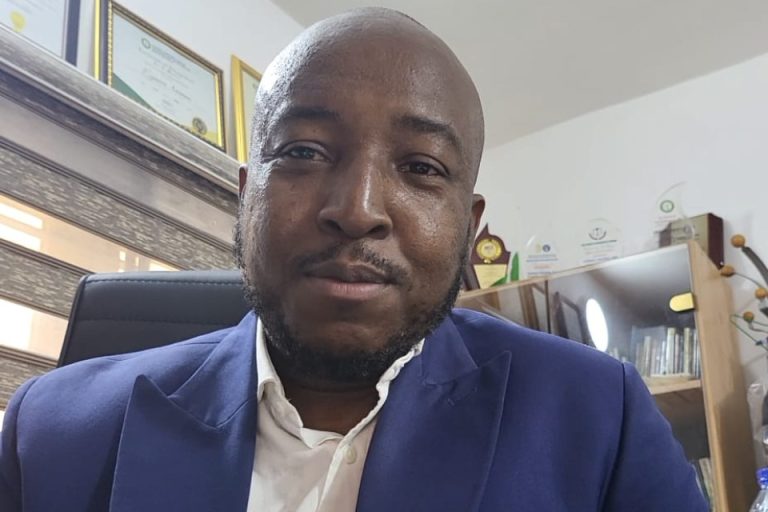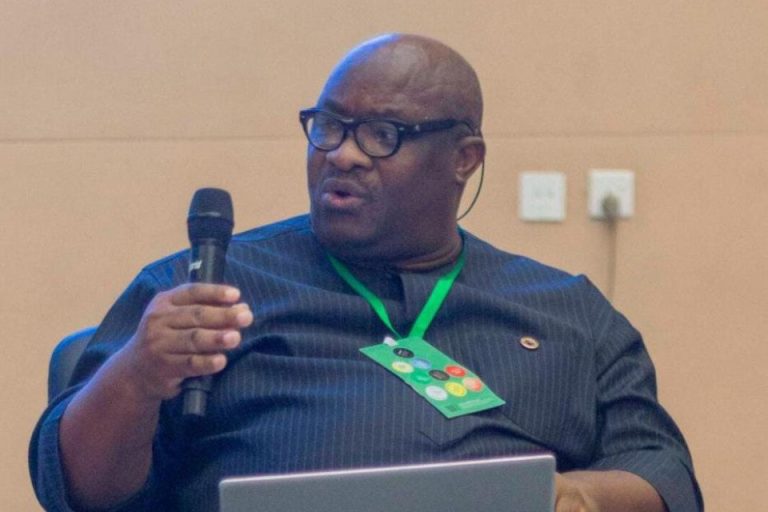In response to the escalating climate crisis and growing threat of disinformation, the United Nations Educational, Scientific, and Cultural Organisation (UNESCO) and its research institute, the Mahatma Gandhi Institute of Education for Peace and Sustainable Development (MGIEP), have launched a free online course that equips citizens with media and information literacy skills to counter climate misinformation.
As part of its Global Roadmap for Information as a Public Good in the Face of the Environmental Crisis, the new course, “Navigating Climate Information with Media and Information Literacy,” highlights the critical role of Media and Information Literacy (MIL) in countering climate falsehood and promoting informed civic engagement.
Reacting to the launch, UNESCO’s Assistant Director-General for Communication and Information, Tawfik Jelassi, noted: “Disinformation undermines human rights, sustainable development, and threatens democratic processes, while the climate crisis endangers our very existence. Both challenges are interconnected: climate disinformation, amplified by social media and AI, not only resurfaces in public debate but also obstructs sound environmental policies and effective climate action. We must equip individuals with media and information literacy to ensure that everyone can critically evaluate information and distinguish between scientific facts and misleading narratives.”
The course, which was developed with input from climate scientists, advocates, fact-checkers, and communication experts, is composed of five modules that aim to enhance understanding of climate change and the importance of identifying and trusting evidence-based data and scientific facts, build critical thinking and fact-checking skills to evaluate climate information across diverse information providers; and encourage citizens to become media and information literate and to advocate for informed, positive climate action.
Meanwhile, to ensure broad accessibility, particularly for the youth, the course combines a variety of explainers, real-world cases, interactive activities, as well as videos recorded by content creator and scientist, Elizabeth Sherr, to unpack key concepts around climate change and debunk false narratives.
It also encourages participants to explore emerging topics such as the carbon footprint of Artificial Intelligence (AI) and to take action to address eco-anxiety. Through self-paced, interactive modules, learners will develop the skills and competencies needed to understand and respond to the climate crisis.
The course will take approximately 3 to 5 hours to complete and will be conducted in English. A certificate, co-signed by UNESCO and MGIEP, will be awarded upon completion.
As the course continues to reach diverse audiences globally, its content may serve as a valuable resource for a wide range of educational, policy, and advocacy efforts focused on climate action and information integrity. UNESCO welcomes expressions of interest from partners and stakeholders wishing to explore opportunities to reference or feature the course within relevant initiatives or events.
Please visit https://tinyurl.com/bdeht8d5 to enroll for the course. For more information, contact MILunit@unesco.org





